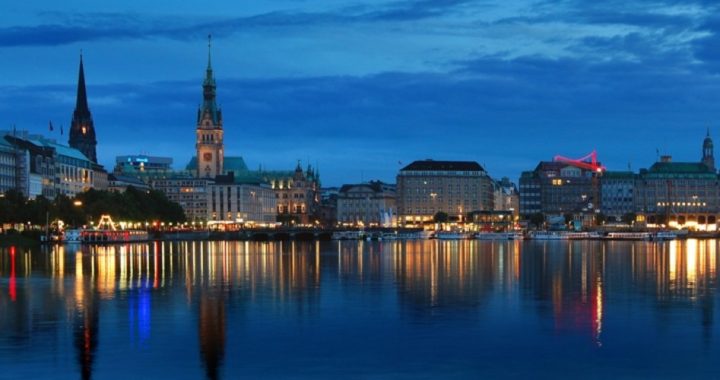
In a move toward religious toleration which would not be seen in a Muslim-majority nation, the government of Hamburg, Germany has now reached an accord with its Muslim communities giving official standing to their religious holidays and permitting adherents of their beliefs to teach religion in the schools.
According to a story for Der Spiegel, the accord marks the first time that Muslims have been granted such a status in Germany:
The deal, which must still be approved by the city’s parliament, is the first of its kind in Germany. It was agreed to by representatives of Hamburg’s Muslim and Alevi communities, whose holidays will gain the same status as non-statutory Christian holidays. On these days, people who wish to observe the holiday have the right to either use a vacation day or make it up another time.
For Americans who are used to the right of freedom of religion enumerated in the Bill of Rights of the U.S. Constitution, the notion of such a state involvement in a fundamentally religious matter may seem strange. Article 4 of the German constitution declares that “the freedom of religion, conscience and the freedom of confessing one’s religious or philosophical beliefs are inviolable. Uninfringed religious practice is guaranteed.” However, the German system of state support for recognized religions is a different matter from the recognition of an individual right, since recognition of a religious group as a “public law corporation” gives that group the ability to receive funding through the “church tax” (Kirchensteuer) and to participate in religious education in the schools. The unstructured nature of Germany’s various Islamic communities has made it difficult for them to gain the necessary legal status in the past, but the Hamburg agreement may be a significant step toward broader recognition. As the English-language website TheLocal.de reports, Germany’s Turkish Muslims played a significant role in the agreement:
The agreement was struck between Hamburg city authorities and the council of Islamic communities (Schura), the Turkish-Islamic Union (Ditib), the association of Islamic cultural centres (VIKZ), as well as the city’s Alevi community. Hamburg Mayor Olaf Scholz was set to sign it on Tuesday, the Hamburger Abendblatt newspaper reported.
Religious instruction in schools and state recognition of Muslim holidays are among the cornerstones of the deal, which ties into existing agreements with Christian churches and Jewish communities.
In future, Muslim teachers will join Protestant pedagogues at the front of the classroom, the paper said. Moreover, Muslim holidays would be given equal status with other religious holidays, such as the Day of Prayer and Repentance celebrated by Christians.
The action of the Hamburg authorities is thus a very significant advance for the open promulgation of Islam in German society. The Turkish portion of the Muslim population in Germany has been a point of tension in recent years; an already strained situation was made dramatically worse in early 2011 when Turkey’s Islamist-leaning prime minister, Tayyip Erdogan, called upon Turks living in Germany to resist assimilation into German society and rattled the sabers against their host country: “Now Turkey will at last start building its own war planes.”
According to the article for Der Spiegel, the agreement in Hamburg could signal that significant changes could follow throughout Germany:
Indeed, praise for the deal came from across the country, including the southern state of Baden-Württemberg. “The Hamburg initiative is a strong signal for both sides — the state and Muslims — in the political debate over whether Muslims belong to Germany,” said the state’s Integration Minister Bilkay Öney.
The spokesperson for the government of the city-state of Berlin, Richard Meng, said he was also pleased that Hamburg had “opened the way for more openness and tolerance,” pointing out that the German capital had also already taken some similar measures, such as providing the right to taking Muslim holidays off for students and workers.
Although some may see the change in status as largely symbolic, the religious rights now exercised by Muslims in Germany are beyond the dreams of Christians living in Islamic countries.
Photo of Hamburg skyline



